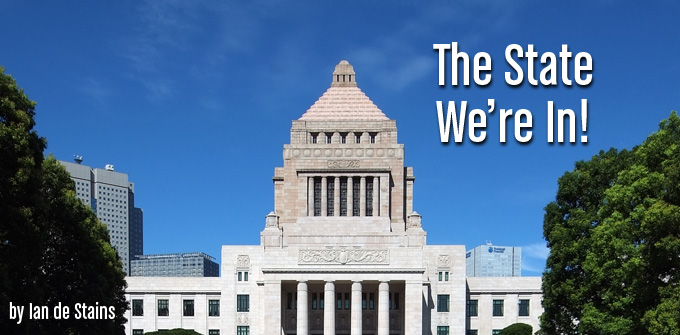Political infighting & incompetence is letting us down
When a country is faced with a crisis of unprecedented measure—say a natural disaster of Biblical proportions—there is a tendency for its people to show solidarity in confronting the realities: to pick up the pieces and to begin rebuilding. So it has been in Japan in the wake of the devastation wrought on March 11 by the most powerful seismic shock in living memory, the consequent gigantic tsunami and the ensuing nuclear near-catastrophe.
The world watched, first in shock as the extent of the disasters unfolded, and then in admiration at the extraordinary dignity of those worst affected by them. The stoicism of the people in Tohoku; the almost immediate attempt to restore order—shoes left in neat rows just outside the tatami areas of the makeshift shelters; the way in which people across the country immediately began donating money and food, clothing and other needed items; the all but nationwide decision to cancel all parties—including the much anticipated viewing of the cherry blossoms—as a mark of respect.
What the outside world did not see was the disgraceful behavior of Japan’s politicians, those in government as well as those in opposition. At a time when the people had a right to expect that their elected representatives would set aside party/political differences and join together in an effort to handle Japan’s worst ever peacetime crisis, those same representatives shamelessly used the crisis situation to further intensify their own parties’ grubby in-fighting. The opposition—thrown out at the last election by a people sick of decades of incompetence and corruption—used the fear and suffering of the voters to suggest that the government was inadequate to the task of dealing with the situation. Recent Sunday television debates have made for sickening viewing for anyone who believed politics was about being in the service of the people.
The arrogance of many of those involved has been quite breathtaking, even to someone who has watched Japanese politics for years. The governing Democratic Party of Japan (DPJ) was already facing internal disquiet with many calling for the resignation of the incumbent Prime Minister, Naoto Kan, the sixth since 2001. Faced with Tohoku, you would think the party would rally behind its leader for the sake of the people but, no: many (including Kan’s predecessor Yukio Hatoyama and the scandal-tainted and thus currently deprived of his parliamentary privileges, Ichiro Ozawa) scented blood and have used the situation to provoke Kan into issuing a statement that he will step down as soon as he is satisfied that the nuclear situation in Fukushima is firmly under control.
That the opposition should table a no-confidence motion in the country’s prime minister at a time of national disaster may be understandable if not entirely palatable. That members of the prime minister’s own party should abstain at such a time (especially when they have such blatant ulterior motives) is nothing short of scandalous. But then, scandal and Japanese politics seem to stick together. The Japanese people deserve better.
Ian de Stains OBE, is a writer and life strategies coach. His “Business Traveller’s Handbook to Japan” is published by Stacey International in the UK and is also available on Amazon.









